Boost Your Insulation Bids – Request a Precision Estimate!
- Accurancy
- Efficiency
- Transparency
- Customization
- Time Saving
- Professionalism
- Cost Control
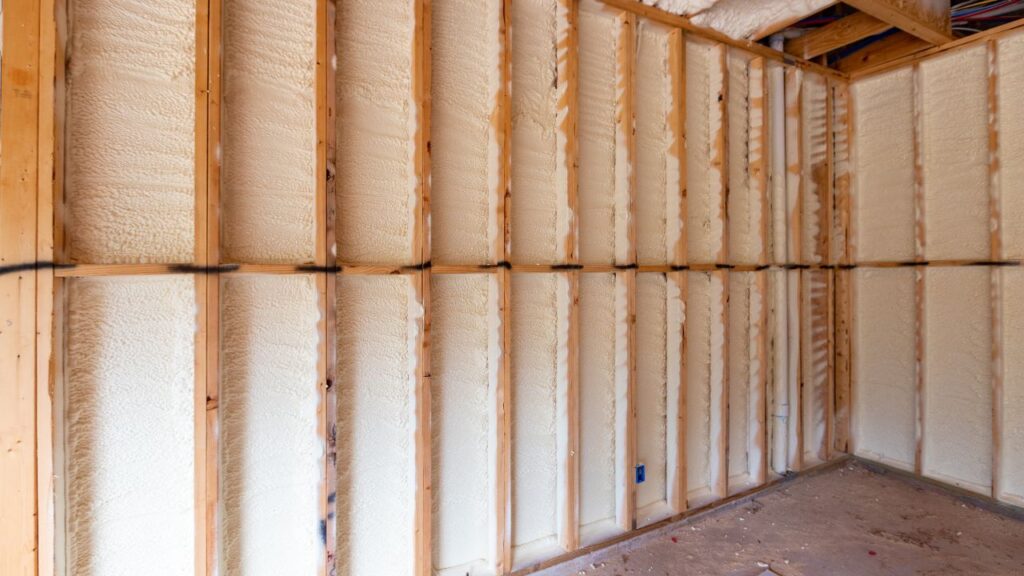
On average, you’re looking at about $15,625 to $37,500, which translates to roughly $6.25 to $15.00 per square foot. At Estimate Florida Consulting, we understand that each home is unique. That’s why we provide tailored estimates, taking into account the specifics of your house and the type of insulation you’re considering. Our aim is to give you a clear and comprehensive cost breakdown, ensuring you can make a well-informed decision that aligns with both your budget and your home’s energy efficiency goals.
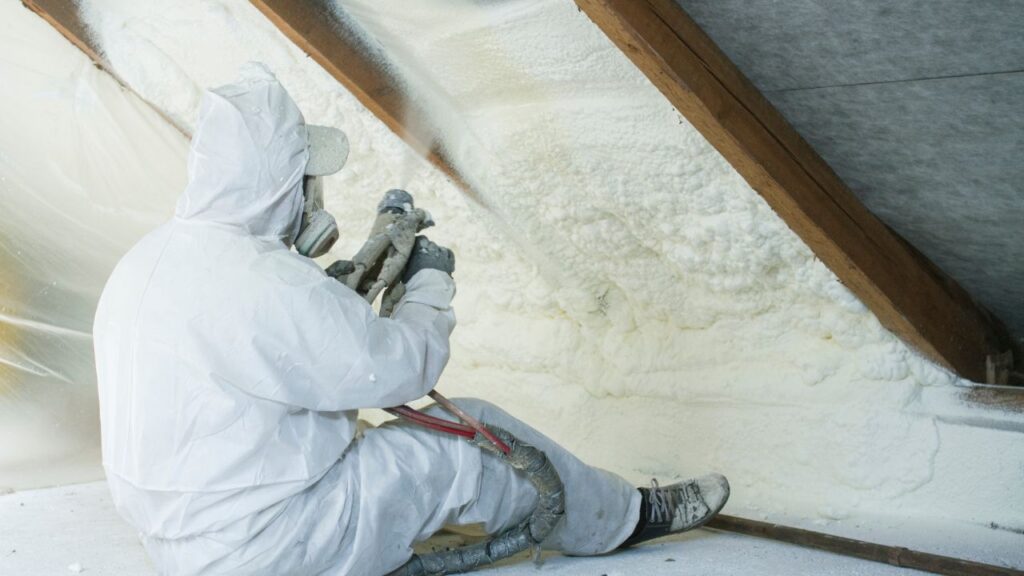
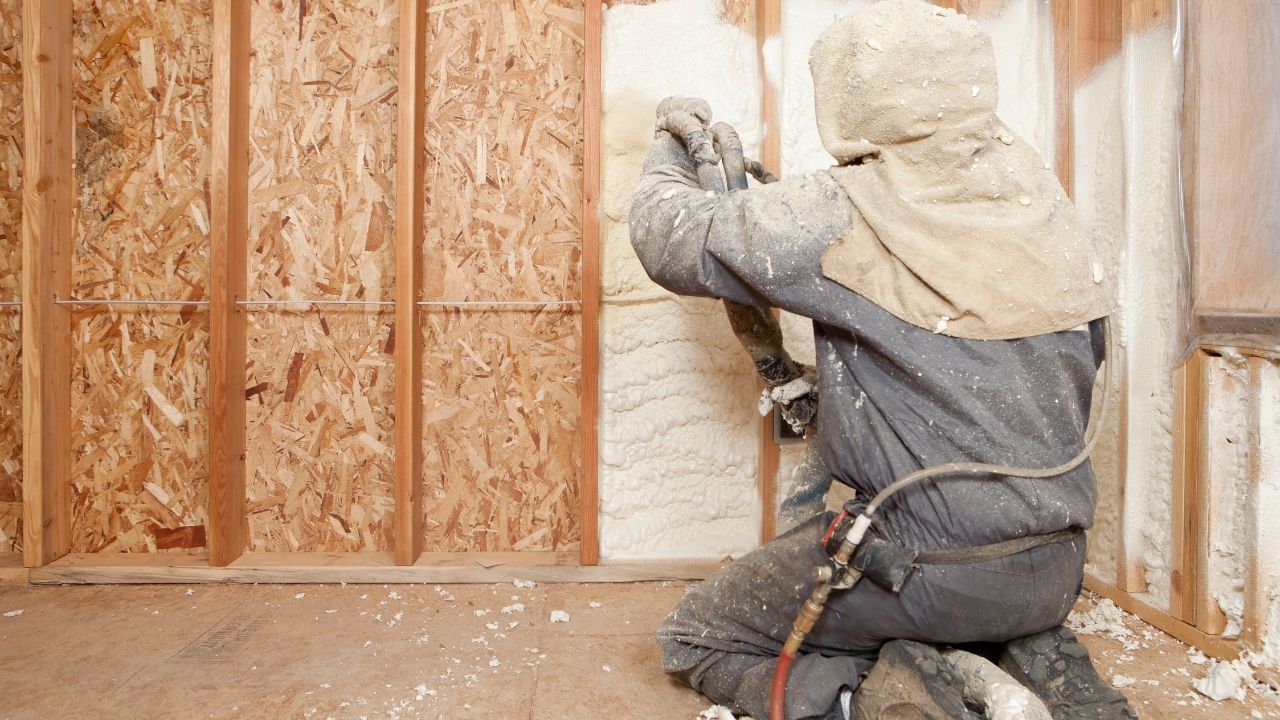
Fully Insured Licensed Hire a Contractor For Insulation
Hire Contractor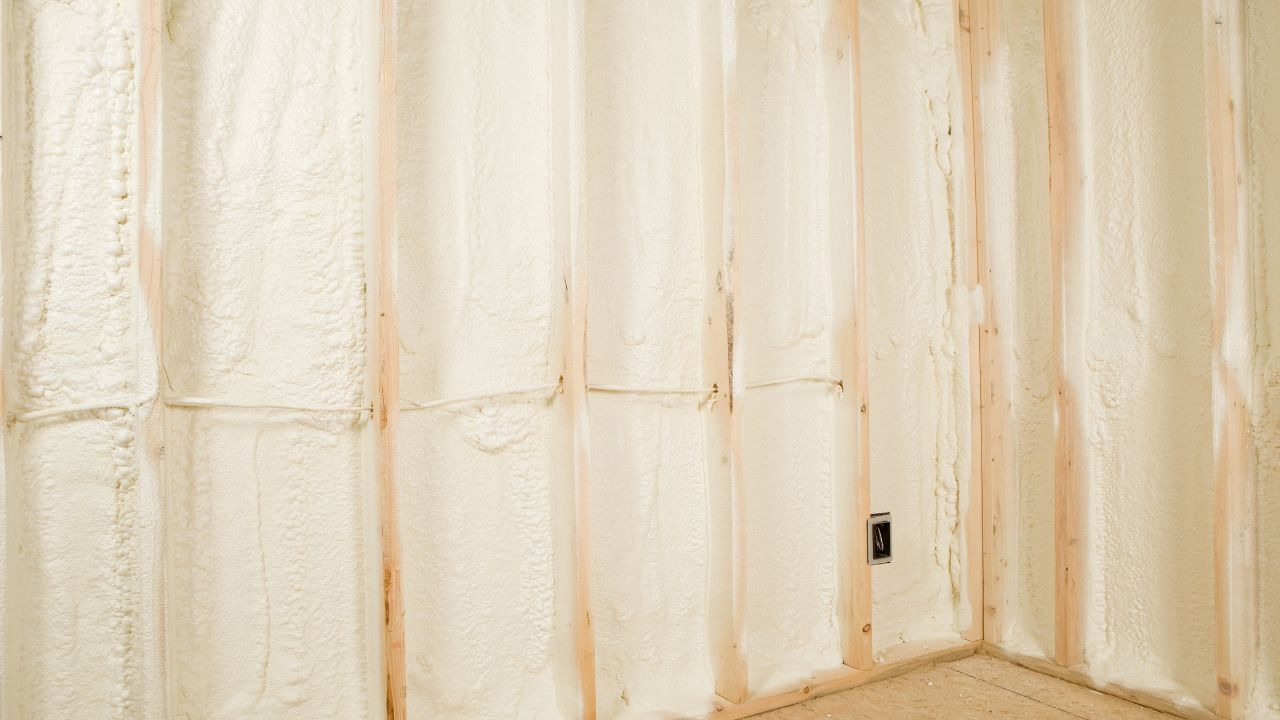
Make Informed Design Decisions Showcase Your Design Ideas
Get RenderingHouse insulation involves the process of installing materials to insulate a home, enhancing its energy efficiency.
This process helps in regulating the indoor temperature by preventing heat loss during colder months and heat gain during warmer months. By reducing the transfer of heat through walls, ceilings, and floors, insulation creates a barrier that minimizes the need for constant heating or cooling systems.
Different types of insulation such as fiberglass, spray foam, and cellulose offer unique advantages in terms of thermal performance and cost-effectiveness. Properly installed insulation not only lowers utility bills by reducing energy consumption but also creates a more comfortable living environment by maintaining consistent temperatures throughout the home.
House insulation is crucial as it helps in reducing heat loss and saving energy costs, resulting in significant savings over time.
Proper insulation plays a vital role in maintaining a comfortable indoor climate by keeping the interior temperature consistent, regardless of external weather conditions. By reducing the need for constant heating or cooling, insulation contributes to lower utility bills and decreased energy consumption. This not only benefits homeowners financially but also has a positive environmental impact by reducing the overall energy demand. Investing in quality insulation today can lead to substantial long-term savings and a more sustainable living environment.
House insulation comes in various forms such as fiberglass insulation, cellulose insulation, and spray foam insulation, each with its unique R-value and benefits.
Fiberglass insulation, made from tiny fibers of glass, is popular for its cost-effectiveness and easy installation. It provides good thermal resistance, making it suitable for many applications.
Cellulose insulation, derived from recycled paper products, boasts excellent eco-friendliness and can fill in tight spaces effectively.
On the other hand, spray foam insulation offers exceptional air sealing properties and can conform to irregular shapes, but it comes with a higher price tag.
When selecting insulation, considering the R-value is crucial as it indicates the material’s ability to resist heat flow.
Fiberglass insulation is a popular choice for attic insulation and wall insulation due to its affordability and versatility.
It is known for its excellent thermal performance, helping to regulate temperatures and reduce energy costs in homes and buildings. Installation of fiberglass insulation is relatively straightforward, with options for rolls, batts, or blown-in forms to suit various spaces. The material is lightweight and flexible, making it easy to handle during the installation process. In addition to providing excellent thermal resistance, fiberglass insulation is also fire-resistant, mold-resistant, and does not absorb moisture, making it a durable and safe choice for attics and walls.
Cellulose insulation is known for being an eco-friendly insulation option that is typically blown in during installation.
It is made from recycled paper materials, making it a sustainable choice for homeowners looking to reduce their carbon footprint. The installation process involves a special machine blowing the cellulose fibers into the desired areas, effectively filling gaps and creating a seamless barrier against heat loss. By utilizing cellulose insulation, households can significantly improve energy efficiency by maintaining stable indoor temperatures and lowering heating and cooling costs. This environmentally-friendly material helps reduce the amount of waste in landfills, showcasing its positive impact on the environment.
Spray foam insulation is a versatile option that can provide superior insulation due to its insulation thickness and ability to fill gaps efficiently.
This type of insulation is known for its excellent thermal performance, creating a highly effective barrier against heat loss and air infiltration. By expanding rapidly upon application, spray foam insulation can conform to various shapes and sizes, ensuring a tight seal in areas that traditional insulation methods might struggle to cover.

The high insulation R-value of foam insulation helps to enhance energy efficiency in buildings, leading to reduced utility costs and a more comfortable indoor environment throughout the year.
Rigid foam insulation is valued for its high insulation density and excellent moisture resistance properties, making it suitable for damp environments.
It is a versatile building material that is commonly used in areas prone to high humidity levels, such as basements, crawl spaces, and attics. The density of rigid foam insulation helps provide a barrier against heat transfer, which contributes to its outstanding thermal efficiency. In addition to its resistance to moisture, rigid foam insulation is also known for its durability, as it does not degrade over time or lose its insulating properties. These characteristics make it an ideal choice for long-term insulation projects where maintaining effectiveness in humid conditions is essential.
Reflective insulation utilizes innovative insulating materials that offer excellent fire resistance properties, providing a safe and efficient thermal barrier.
This type of insulation is commonly composed of materials such as aluminum foil, foam, or other reflective barriers, which help to reflect heat away instead of absorbing it. This feature not only aids in maintaining a consistent indoor temperature but also plays a significant role in reducing energy consumption and costs.
One of the standout qualities of reflective insulation is its ability to effectively combat radiant heat transfer, making it a popular choice for both residential and commercial buildings. The fire-resistant nature of reflective insulation adds an extra layer of safety, giving homeowners and contractors peace of mind when undertaking insulation projects.
The cost of insulating a 2,500 square foot house typically falls within the range of $15,625 to $37,500, translating to an average of $6.25 to $15.00 per square foot. This cost estimate can vary significantly based on several key factors. The type of insulation material selected, such as fiberglass, cellulose, or spray foam, plays a major role in determining the overall cost. Additionally, the specific areas of the home requiring insulation, like attics, walls, or basements, also impact the price. Labor costs, which can differ based on geographical location and the complexity of the installation process, further influence the total expense of the insulation project.
Home Size (Square Feet) | Estimated Cost Range (Low) | Estimated Cost Range (High) |
Up to 1,000 | $3,750 – $7,500 | $7,500 – $15,000 |
1,001 – 2,000 | $7,500 – $15,000 | $15,000 – $30,000 |
2,001 – 3,000 | $11,250 – $22,500 | $22,500 – $45,000 |
3,001 – 4,000 | $15,000 – $30,000 | $30,000 – $60,000 |
4,001 – 5,000 | $18,750 – $37,500 | $37,500 – $75,000 |
5,001 – 6,000 | $22,500 – $45,000 | $45,000 – $90,000 |
6,001 – 7,000 | $26,250 – $52,500 | $52,500 – $105,000 |
7,001 – 8,000 | $30,000 – $60,000 | $60,000 – $120,000 |
8,001 – 9,000 | $33,750 – $67,500 | $67,500 – $135,000 |
9,001 – 10,000 | $37,500 – $75,000 | $75,000 – $150,000 |
Over 10,000 | Custom Quote Required | Custom Quote Required |
These ranges offer homeowners a more detailed perspective on potential insulation costs based on the size of their homes. Actual costs may vary depending on factors such as insulation type, labor rates, and any additional requirements specific to your home.

Several factors impact the cost of house insulation, including the type of insulation selected, the expected ROI, and the complexity of the installation process.
The cost of house insulation projects can vary significantly depending on the specific type of insulation chosen. For instance, traditional fiberglass insulation may come at a lower upfront cost compared to more advanced options like spray foam or cellulose, yet these premium alternatives often offer superior performance and greater long-term savings.
Consideration also needs to be given to the expected ROI, as investing in high-quality insulation today can lead to substantial energy savings over time. Technical complexities during installation, such as the size of the project and the accessibility of the areas to be insulated, can further influence overall costs.
The average cost for insulating a 2,500 sq ft house is estimated to be between $15,625 and $37,500, equating to roughly $6.25 to $15.00 per square foot. This price range is influenced by several factors, including the type of insulation material – fiberglass, cellulose, or spray foam – and the areas of the house that need insulation, such as attics, walls, or basements. The cost also varies depending on the labor rates, which can differ based on the region and the complexity of the installation. Moreover, the overall efficiency and long-term energy savings that different insulation materials offer can also affect the decision-making process and the project’s total cost.
Insulating a house offers a range of benefits, including significant energy savings, enhanced indoor comfort, and increased property value.
By adding insulation to a home, it helps in reducing the energy consumption required to maintain a comfortable temperature, resulting in lower utility bills and decreased carbon footprint. Proper insulation enhances the indoor comfort by regulating temperatures throughout the seasons, providing a consistent and cozy environment all year round.
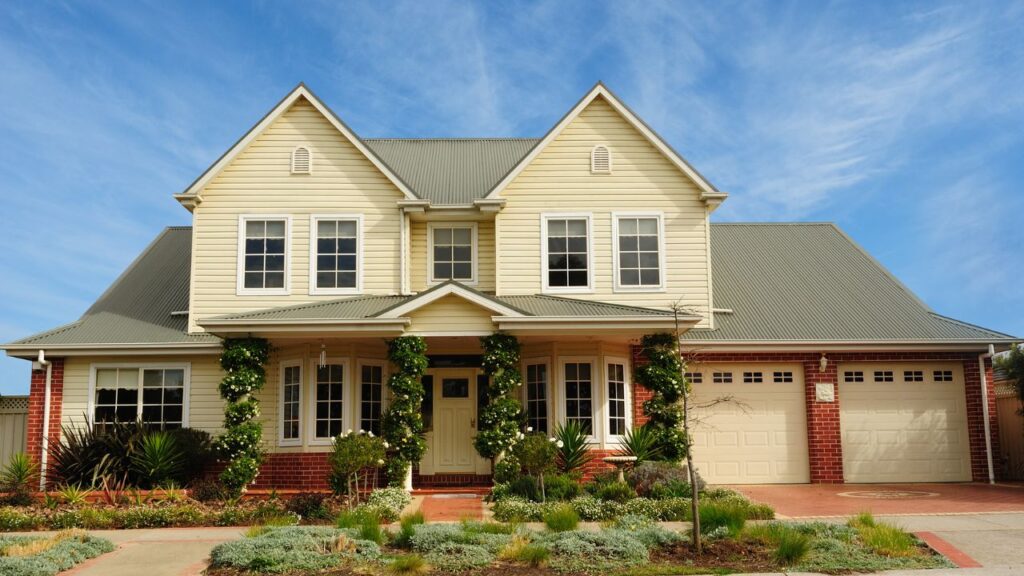
Not only does insulation contribute to energy efficiency and improved comfort levels, but it also plays a crucial role in boosting the property’s resale value as prospective buyers are increasingly valuing homes with energy-efficient features and sustainable upgrades.
One of the primary benefits of house insulation is the substantial energy savings it offers, resulting in lower utility bills due to improved insulation thickness.
By having proper insulation thickness in place, homes can better retain heat during colder months and keep cool air in during warmer months. This leads to reduced energy consumption as the heating and cooling systems work more efficiently, ultimately resulting in significant cost reductions on energy bills. The quality of insulation plays a crucial role in determining the overall energy efficiency of a home, directly impacting the amount of money saved on utility expenses in the long run.
House insulation enhances indoor comfort by regulating temperatures and humidity levels, with high insulation density providing optimal moisture resistance for comfort.
This regulation of temperature and humidity ensures that the atmosphere inside the house remains pleasant and consistent, regardless of the external weather conditions. By effectively controlling moisture, insulation plays a crucial role in preventing mold and mildew growth, which can not only damage the structure of the house but also pose health risks to its occupants. A well-insulated home also helps in reducing energy bills by maintaining a steady indoor temperature, reducing the need for excessive heating or cooling.
In addition to thermal benefits, house insulation aids in noise reduction and soundproofing, contributing to a quieter environment and enhancing the insulation lifespan.
Proper insulation quality plays a crucial role in controlling noise transmission within a household. By effectively blocking sound vibrations, insulation materials act as a barrier against unwanted noise from outside sources or within the house itself. This not only creates a more peaceful living space but also helps in maintaining the durability of the insulation over time.
The relationship between soundproofing and insulation durability is intertwined, as the ability of insulation to resist noise impact directly impacts its longevity and effectiveness in providing acoustic comfort.
Proper house insulation can boost the property value by showcasing energy efficiency features, backed by an insulation warranty that ensures long-term performance with regular insulation maintenance.
This increased energy efficiency not only reduces utility costs for the homeowners but also contributes to a more environmentally friendly living space. The assurance of the insulation warranty provides peace of mind to potential buyers, knowing that the insulation will continue to perform efficiently for years to come. Homebuyers are increasingly prioritizing energy-efficient features, making a well-insulated home more attractive on the resale market. As property values continue to appreciate, the initial investment in quality insulation pays off in the long run.”
Selecting the appropriate house insulation involves considering factors such as your budget, available insulation options, and conducting an insulation comparison to determine the best fit.
When it comes to choosing the right insulation for your home, it’s crucial to assess your budget constraints to ensure you select a cost-effective option that meets your needs. Take into account factors like the initial cost of the insulation material, as well as its long-term energy-saving benefits to make an informed decision.
Explore the various insulation options available in the market, from traditional fiberglass batts to newer eco-friendly options like cellulose or spray foam. Evaluating factors like R-value, installation ease, and environmental impact can help you narrow down the choices and find the most suitable insulation for your home.
Begin the insulation selection process by assessing your budget and exploring cost-effective insulation solutions, considering an insulation consultation to get expert advice.
This initial step is crucial in ensuring that the insulation chosen not only meets your specific needs but also fits within your financial means.
Opting for budget-friendly insulation options, such as fiberglass or cellulose, can help you achieve cost efficiency without compromising on quality.
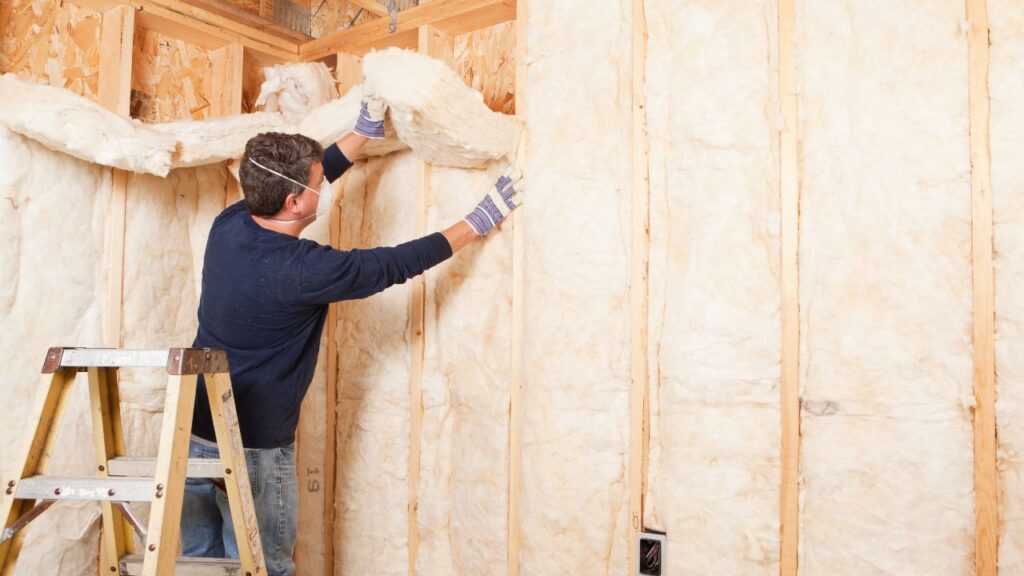
Seeking professional consultation can further enhance the overall effectiveness of your insulation plan, as experts can offer tailored solutions that maximize energy savings and long-term benefits for your home.
Assess your home’s requirements for improvement, taking into account factors like required and staying informed about current .
Consider the specific needs of your living space – from its size and layout to the regional climate and energy efficiency goals. Understanding the needed for your home will help regulate indoor temperatures and reduce energy costs. Stay updated on advancements in , such as eco-friendly materials and innovative installation methods, to ensure your home remains well-insulated for maximum comfort and savings. These factors play a crucial role in making informed decisions about enhancing your home’s insulation.
Explore a variety of insulation types available in the market, considering factors like performance, cost, and practical insulation tips to guide your selection.
When looking at different insulation options, you’ll find a range of materials such as fiberglass, cellulose, foam, and mineral wool, each with its unique benefits.
Fiberglass insulation, made from tiny fibers of glass, is a popular choice due to its affordability and fire resistance.
Cellulose insulation, derived from recycled paper, offers excellent thermal performance.
Foam insulation, including spray foam and rigid foam boards, provides superior air sealing.
Mineral wool, made from rock or slag, is known for its fire resistance and sound absorption properties.
Considering your specific needs, budget, and installation requirements will help you make an informed decision when selecting the right insulation for your home.

Fully Insured Licensed Hire a Builder For Insulation
Hire Contractor
Make Informed Design Decisions Showcase Your Design Ideas
Get RenderingInsulating a 2500 sq ft house is a wise investment that balances immediate cost with long-term benefits. Averaging between $15,625 to $37,500, or approximately $6.25 to $15.00 per square foot, the cost varies depending on the insulation type, area being insulated, and regional labor rates. At Estimate Florida Consulting, we recognize the uniqueness of each home and provide customized estimates to help homeowners make informed decisions. Proper insulation not only reduces energy bills and enhances comfort but also increases the home’s value. It’s an essential step towards creating an energy-efficient, cost-effective, and comfortable living environment.
On average, insulating a 2500 sq ft house costs between $31,250 and $75,000, roughly translating to about $6.25 to $15.00 per square foot. This can vary based on insulation type, home specifics, and regional labor costs.
Insulation is crucial for improving a home’s energy efficiency by reducing heat loss and gain, resulting in lower energy bills. It also enhances comfort by maintaining consistent indoor temperatures and contributes to a more sustainable living environment.
Common types of insulation include fiberglass, cellulose, spray foam, rigid foam, and reflective insulation. Each type offers unique benefits in terms of thermal performance, cost, and suitability for different areas of a house.
Yes, insulating your home can increase its value. Improved energy efficiency is a desirable feature that can attract potential buyers and lead to higher property values.
Consider factors like your local climate, budget, specific insulation needs of your home, and the R-value required. Research different insulation materials, and consider seeking professional advice to ensure you select the most effective and cost-efficient option for your home.
Here I am going to share some steps to get your How Much Does It Cost To Insulate a 2500 sq ft House estimate report.
You can send us your plan on info@estimatorflorida.com
Before starting your project, we send you a quote for your service. That quote will have detailed information about your project. Here you will get information about the size, difficulty, complexity and bid date when determining pricing.
Our team will takeoff and estimate your project. When we deliver you’ll receive a PDF and an Excel file of your estimate. We can also offer construction lead generation services for the jobs you’d like to pursue further.



561-530-2845
info@estimatorflorida.com
Address
5245 Wiles Rd Apt 3-102 St. Pete Beach, FL 33073 United States
561-530-2845
info@estimatorflorida.com
Address
5245 Wiles Rd Apt 3-102 St. Pete Beach, FL 33073 United States
All copyright © Reserved | Designed By V Marketing Media | Disclaimer